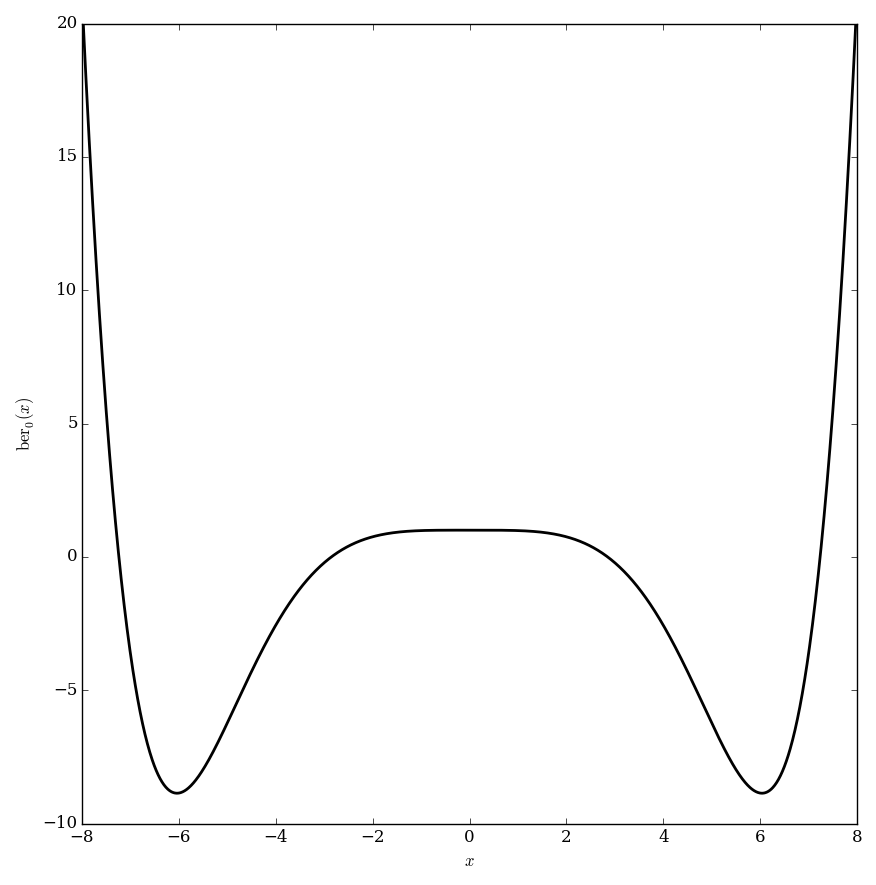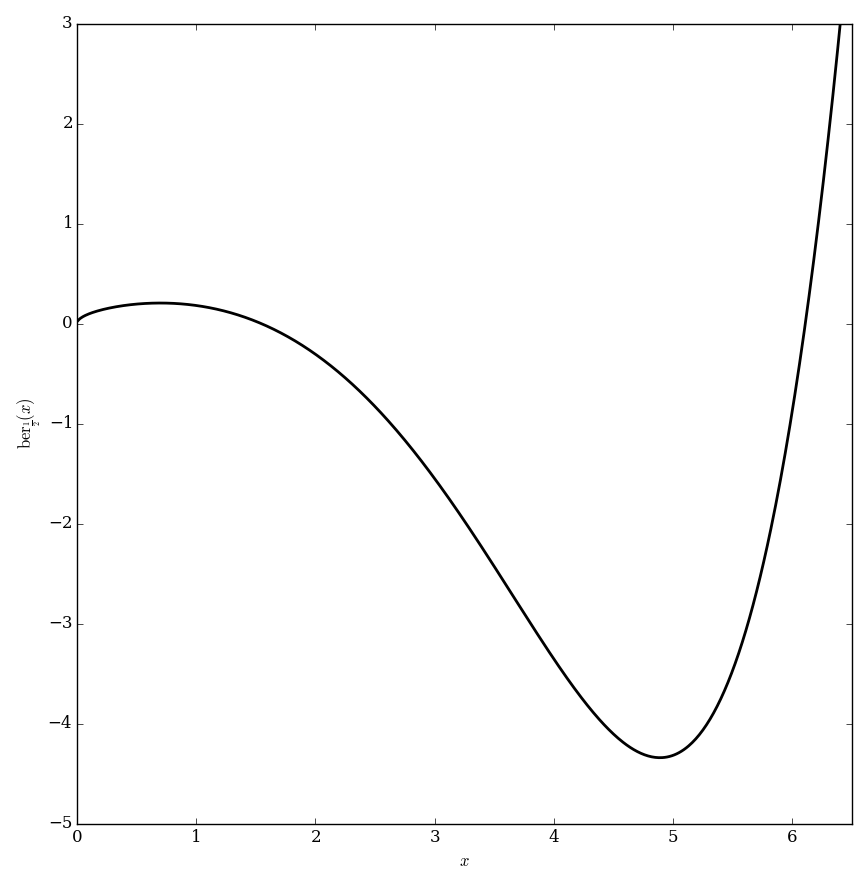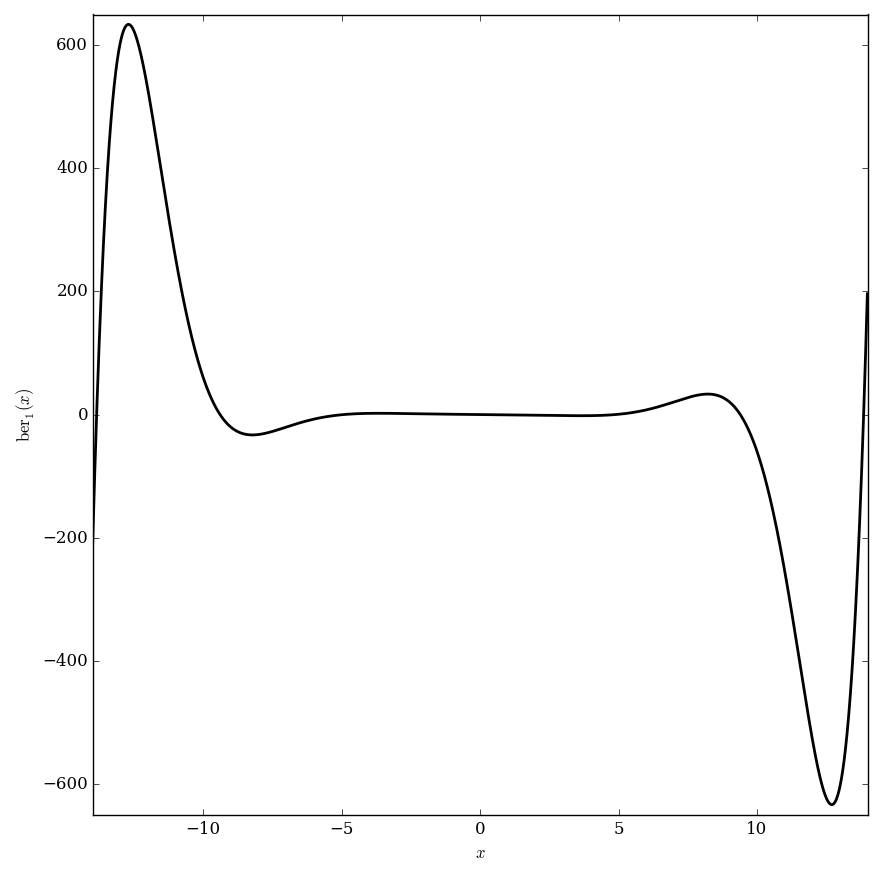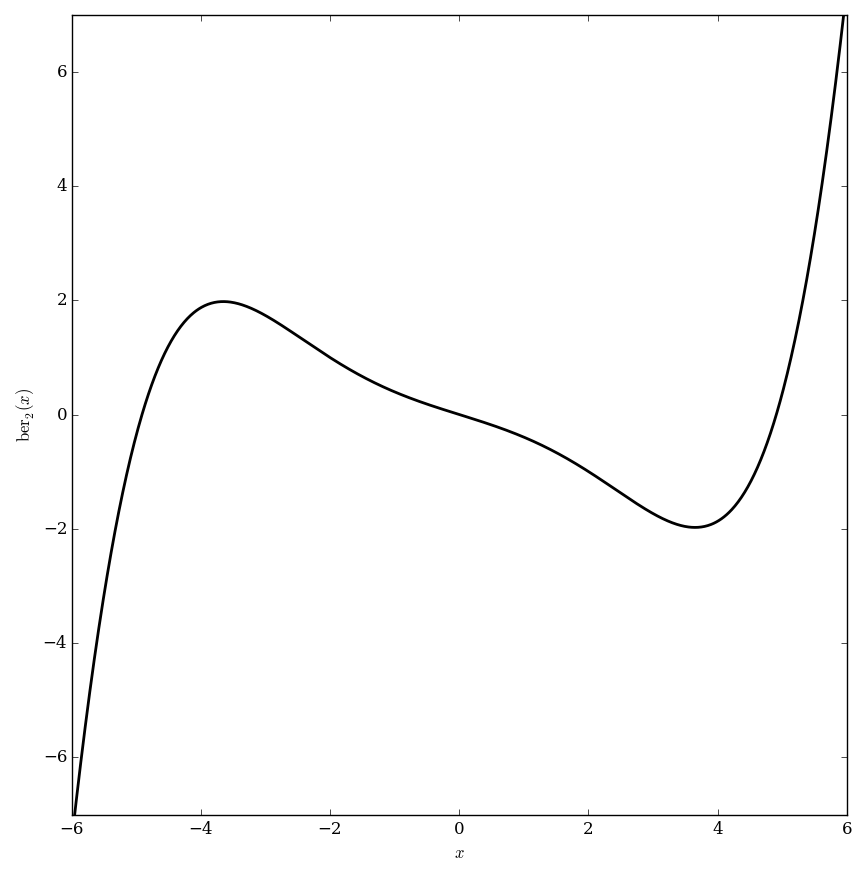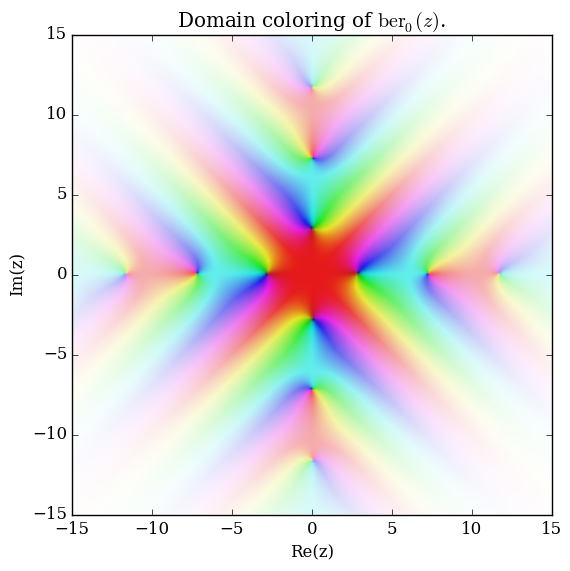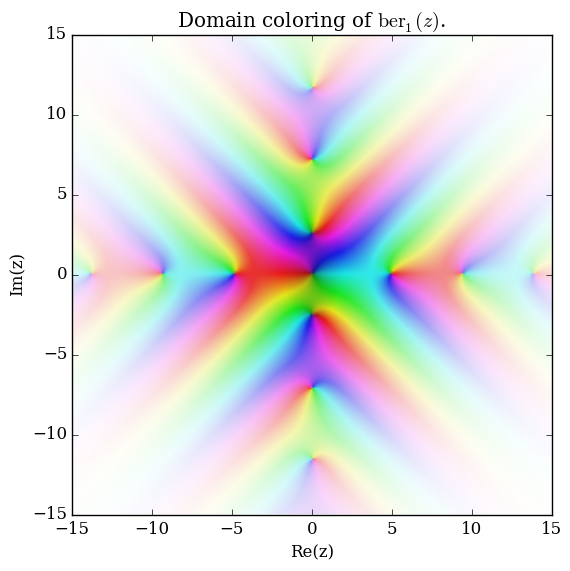Difference between revisions of "Kelvin ber"
From specialfunctionswiki
| (3 intermediate revisions by the same user not shown) | |||
| Line 10: | Line 10: | ||
File:Kelvinber,n=2plot.png|Graph of $\mathrm{ber}_2$. | File:Kelvinber,n=2plot.png|Graph of $\mathrm{ber}_2$. | ||
File:Complexkelvinber,n=0plot.png|[[Domain coloring]] of $\mathrm{ber}_0$. | File:Complexkelvinber,n=0plot.png|[[Domain coloring]] of $\mathrm{ber}_0$. | ||
| + | File:Complexkelvinber,n=1plot.png|[[Domain coloring]] of $\mathrm{ber}_1$. | ||
</gallery> | </gallery> | ||
</div> | </div> | ||
=References= | =References= | ||
| − | + | * {{BookReference|Higher Transcendental Functions Volume II|1953|Arthur Erdélyi|author2=Wilhelm Magnus|author3=Fritz Oberhettinger|author4=Francesco G. Tricomi|prev=findme|next=Kelvin bei}}: $\S 7.2.3 (19)$ | |
[[Category:SpecialFunction]] | [[Category:SpecialFunction]] | ||
{{:Kelvin functions footer}} | {{:Kelvin functions footer}} | ||
Latest revision as of 05:41, 4 March 2018
The $\mathrm{ber}_{\nu}$ function is defined as $$\mathrm{ber}_{\nu}(z)=\mathrm{Re} \hspace{2pt} J_{\nu} \left( z e^{\frac{3\pi i}{4}} \right),$$ where $\mathrm{Re}$ denotes the real part of a complex number and $J_{\nu}$ denotes the Bessel function of the first kind.
Domain coloring of $\mathrm{ber}_0$.
Domain coloring of $\mathrm{ber}_1$.
References
- 1953: Arthur Erdélyi, Wilhelm Magnus, Fritz Oberhettinger and Francesco G. Tricomi: Higher Transcendental Functions Volume II ... (previous) ... (next): $\S 7.2.3 (19)$
